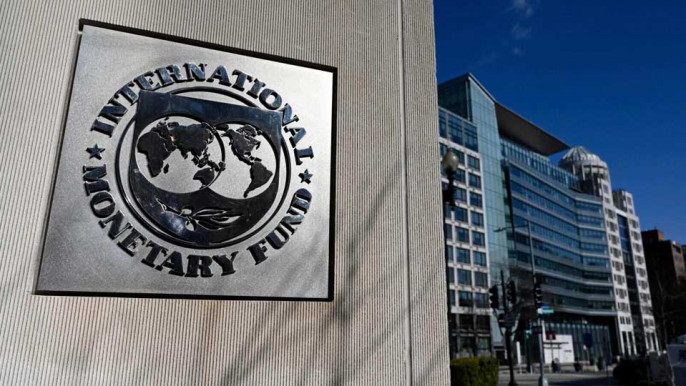An International Monetary Fund (IMF) mission will arrive in Dhaka on Sunday on a five-day visit to assess climate-related risks in the financial sector of Bangladesh.
In a letter sent to the Bangladesh Bank governor recently, the global lender said the IMF's Monetary and Capital Markets (MCM) Department is proposing a mission in Bangladesh on 5-9 March.
The mission, led by Agense Carella, an economist at the MCM Department of the IMF, will help the Bangladesh authorities, including the Bangladesh Bank and Ministry of Finance, to develop a framework to assess physical climate risk – identifying available financial and climate data and designing a risk assessment framework that is tailored to available data with a focus on the impact of floods on the banking sector.
Out of the $4.7 billion loan Bangladesh is taking from the IMF to deal with the ongoing dollar crisis, $1.4 billion is being given under the Resilience and Sustainability Facility (RSF).
Bangladesh is the first Asian country to receive loans from this fund to meet the challenges of climate change.
The mission will also help set up collaboration and data-sharing mechanisms between climate experts in the ministries of agriculture, environment, forest and climate change, water resources, and disaster management and relief, the Bangladesh Bureau of Statistics, and financial sector experts of the Bangladesh Bank.
According to officials of the Finance Division, the government has to implement several programmes in the budget of the next financial year to deal with the risk of climate change to get the RSF fund. That is why the Ministry of Finance is preparing to bring out a separate budget book on climate change in the next budget.
The IMF said assessment of climate risks for the financial sector is also a key reform under the RSF arrangement. The technical assistance will support the authorities' efforts to meet the RSF conditions for financial sector assessment of climate risks for programme disbursement.
With current annual climate-related government spending under 1% of GDP against the needed 3% to 4% over the next 15 years, Bangladesh has a significant financing need to meet climate change challenges, the lender said.
It also said any climate financing gap – similar to SDGs financing gaps – will be met by not executing spending in this area. RSF resources will expand the fiscal space to help finance priorities identified in the Bangladesh Delta Plan 2100 and the National Adaptation Plan, by crowding in other financings, substituting for more expensive domestic financing, improving public debt dynamics, and reducing the balance of payment pressures from import intensive climate investment.
The World Bank and the Asian Development Bank are also considering new budget support programmes to help with the implementation of various climate-related reforms. The authorities plan to mobilise an additional $8 billion through public green bonds under Bangladesh Delta Plan 2100 and private green financing under the Mujib Climate Prosperity Plan.














